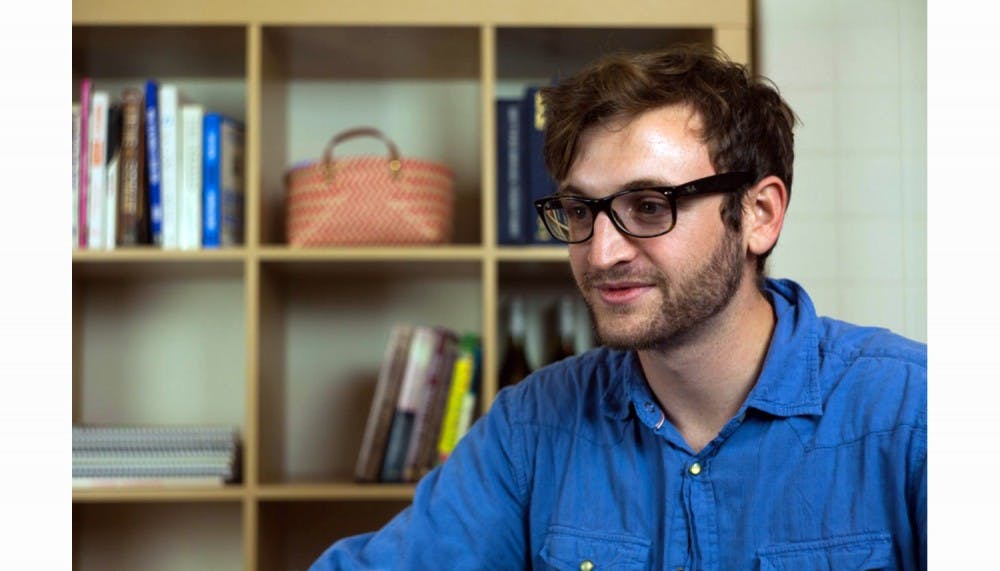Tyler Burke is a senior in the College studying visual communication, and he’s on a mission to tell us the story of Jewish matchmakers. As part of an independent study class at Annenberg, he’s filming a short–length documentary about modern day shadchans, Jewish marriage intermediaries with historical roots in the Middle Ages.
“As a profession, it sort of emerged after the Crusades when a lot of Jewish communities became spread out,” he explains. At the start of the Jewish diaspora, matchmakers were necessary in encouraging union and procreation in various communities, traveling across villages to set up partners.
Matchmaking has religious roots in some readings of the Talmud and Torah and in the concept of besheret, the idea that every Jewish person has a worldly match predestined by God. “There’s a strong belief in the Jewish culture that everyone has somebody out there for them,” Burke continues. "And today in many Orthodox communities, marriage is seen as an important act of community building that also helps to separate the engaged from their parental families."
Matchmakers might be just as indispensable today as they were in pre–Renaissance times. Tyler mentions the present “Shidduchim Crisis” in the Orthodox faith, in which a young female marrying age coupled with a high birth rate has created a generation of more females than male suitors
To tackle the topic of matchmaking across cultures, Tyler started out with a quest to speak to a secular matchmaker, an Indian matchmaker and then a Jewish matchmaker, but access became an issue and he decided to stay with the shadchan. In the documentary, he works with two different matchmakers of diverging styles, assisted by Amanda Prager who is working on the project as producer and director of photography.
Lori Salkin works for an online dating service called Saw You at Sinai, where she talks to users over the phone to better understand their personalities before going into her database of profiles and recommending matches for them. She is necessary, as her primarily Orthodox but sometimes Reform clientele can only access potential dates at her suggestion. Tyler describes her hectic work life as something of a personal assistant on Adderall. “She works 12 hours a day on the phone. She works from home. She has a computer set–up where she has like six Facebook chats open at one time, her iMessage is going all the time, GroupMes, WhatsApp.” And it seems to be working, as she’s made matches in Israel and all over the United States. She uses her binder of details from her initial conversations with clients to glean information about family background, religious leaning and personal values, which she considers to be most important for her pairings.
“And then there’s Danielle, who works for a non–profit and does matchmaking as a volunteer on the side,” Tyler continues. She works in a less formal fashion. People reach out to her personally, and she matches them with other people that have contacted her. She also coordinates events for this non–profit, called Tribe 12, which seeks to create communities for Jews in their 20s and 30s. In fact, Danielle arranged a speed–dating singles event happening in two weeks, which Tyler was not permitted to film due to its intimate nature.
While he was at first interested in how these Jewish matchmakers interact with 21st–century dating and platforms like JSwipe, he found that the two tools were not at odds. “It’s definitely not a combative thing. In fact, Danielle will even help people work on their online dating profiles because she knows that’s a way for people to access other members outside of her own network.” Both matchmakers use dating apps to some end to help their clients, but Tyler observed that a lot of Jewish people sought matchmakers in the first place out of frustration with dating apps.
While Tyler is required to turn in an official academic cut of his short documentary at the end of the semester, he plans to continue the project into the spring and toy with some different versions. In fact, he plans to follow at least one of the clients of these shadchan to see how they fare throughout the process, an advantage of extending his own personal deadline for the movie. And while he plans to have it function like his Communication thesis, he also hopes to submit it to student festivals after he’s finished a final cut. And hey, maybe this to–be–named documentary will be coming to an independent theater near you.

